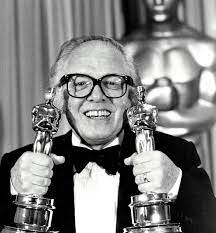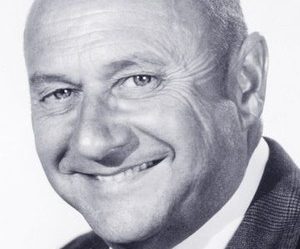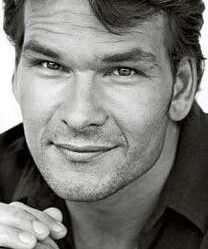
WARNING: This Article May Contain Spoilers
Born: 29th August 1923
Died: 24th August 2014 (age 90)
Lord Richard Attenborough, Baron Attenborough of Richmond-Upon-Thames was born plain old Richard Samuel Attenborough to Mary and Frederick Attenborough in Cambridge. His mother was a founder of the Marriage Guidance Council and his father was a scholar who was a don at Emmanuel College and wrote a text on Anglo-Saxon law. When he was nine the family moved to Leicester as his father had been given the role of principal of University College, Leicester – Richard and his brothers, David and John, all attended Wyggeston Grammar School for Boys in Leicester. At the age of sixteen his parents took in, and later adopted, two young German Jewish girls, Helga and Irene and they all lived together in College House. Richard attended RADA and graduated with a Diploma in 1942. Although Attenborough joined the RAF during WW2 he was assigned to the Royal Air Force Film Production Unit after his initial pilot training – during further flight training, for the Production Unit, he sustained irreparable ear damage. Although his acting career started before he went to RADA at the Little Theatre in Leicester his broke into film first although his breakthrough film role as Pinkie Brown in Brighton Rock came after he had played Pinkie on stage in a satisfactory run at the Garrick Theatre, London. Nine years after the stage production of Brighton Rock, and seven years into his marriage to Sheila Sim, they both took roles in the original cast of The Mousetrap – taking a 10% profit participation in the production, which at a later date Attenborough said was “a sound investment as it kept his production of Ghandi afloat” (Ghandi was the only film that Attenborough directed that was nominated and won any Academy awards – so it was worth it!). Directing and production started in the late 1950s, alongside bRyan Forbes, and, at first, he took roles in several of them (none that he directed himself) but after a while his appearances in these films petered out as he started to concentrate more on the directorial and production side of things – although he did still pursue an acting career under other directors although he did take a break from acting in 1979 that was until Steven Spielberg asked him to take the role of John Hammond in his 1993 film, Jurassic Park.
N.B Richard Attenborough’s fourth film is A Bridge Too Far but he goes uncredited as Lunatic Wearing Glasses so I have skipped this film.
I will take Attenborough’s top two films as one as it is of no surprise that his portrayal of John Hammond in Jurassic Park and The Lost World: Jurassic Park take the top two places in his top five. The first films are OK and Attenborough’s portrayal of John Hammond helps them along (even though he’s only in Lost World at the beginning and end for a little bit) but I do think Jurassic Park is a franchise that has gone too far. What I love about his portrayal is that, even at 70 and 74 respectively, he plays Hammond as a knowledgeable man who is proud of what he has created and has a childish effervescence about him that shows his passion and there is a glint in his eye of a cheeky older gentleman that can notice when things are going to go to plan; like when Ellie and Grant agree to go to Jurassic Park in the first film. What I do like about these two films, and before anyone says that they’re based on books so that’s the way Hammond is written, but it’s his realisation that maybe what he has done wasn’t such a great idea and that he has put everyone, including his grandchildren, in jeopardy – it’s his speech, in the first film, presented in a soft Scottish accent (that unfortunately does come and go throughout the films) about when he talks about leaving Scotland and starting a Flea Circus, Petticoat Lane that you realise he has regrets however it is written it takes a strong actor to relay such emotion. From a modern role with a prehistoric twist to a period drama where he played Sir William Cecil in Elizabeth is the sort of role that his voice is made for; gentle and soft yet commanding when it needs to be and very suitable to the Elizabethan era – you are almost expecting him to recite Shakespeare! But there always seems to be a menacing side that Attenborough can turn on and off whenever the script calls like when he tells the Monsieur that Sir Robert is a traitor its gentle but you know he means it. Now to the only remake I think he made, Miracle on 34th Street, in which Attenborough plays Kris Kringle, aka Santa Claus, he brings something magical and a little twinkle to this old man yet there is a sadness to him too and although he plays it well it’s the surrounding film that lets him down so I’m sorry Dickie I am more of a fan of Edmund Gwenn’s portrayal in the more innocent 1947 version. War films are obviously where Richard cut his teeth, so to speak, because of the era of film making he started acting in and I have to admit although not a traditional war film of its time (normally WW2) The Sand Pebbles is about a part of history I knew little about and it is also the second film where Attenborough starred alongside Steve McQueen (the first being The Great Escape). There is a certain innocence about his character Frenchy Burgoyne, he has obviously seen a lot in his life, but his naivety around Maily is so beautiful to watch that my heart really did go out to him. And the rapport that Frenchy has with Jake (Steve McQueen’s character) rubs along beautifully which I’m guessing is helped along with a familiarity between the two actors. From one war film to another and you may know by now that War films are not my favourite choice of film, but I love The Great Escape, I see it more of an escape film than a war one! What I love about it is that it is full of famous actors, yet no one is given more or less screen time than the other – you could say it is a brilliant patchwork of talent that makes the ideal duvet! Attenborough is Bartlett ‘Big X’, head of the escape committee, and although everyone tries their own way at the start, he is the one that is instrumental in everyone knowing what they have to do and holds the timetable. No one stands out as an actor even the talented Richard Attenborough blends into the film’s ‘hubbub’, yet I do find he is a little stiff in places but that is probably just the typical British officer that he is channelling rather than his acting.
I have to admit that there are two roles that Lord Attenborough has portrayed that have made me cold – one is from 1971 when he played serial killer John Christie in 10 Rillington Place and the other, and I really love this film, is way back from when he was about 25 when he played 17 year old Pinkie Brown in the film adaptation of Graham Greene’s Brighton Rock. Pinkie is the leader of a small time gang who are slowly being ousted by Colleoni’s men, yet Pinkie is never going to back down and its not the way he says things it’s his silences that mean the most – there is something about the way he stares that you realise how dangerous this man could be. What probably helps is that Attenborough had a very ‘young’ face with almost porcelain skin and slightly effeminate features. Attenborough actually reprised his role having played it on stage in London’s West End six years before the film was made. I know they remade the film in the 2010s but I have no intention of ever watching it (unless it makes a poor unfortunate actor’s top five) the remake is set in the 1960s and I think there is something grittier about the 1930s and the fact that it was filmed in black and white adds to the atmosphere.
Although Lord Richard Attenborough was a talented actor and director he got more recognition in the way of awards for his directing – he won a two BAFTAs and two Golden Globes for his acting yet never even got a nomination by the Oscar committee throughout his acting career. Directorially his films were nominated for 25 different Oscars yet only Ghandi won anything (from 11 nominations 8 wins including Best Picture and Best Director), between the BAFTAs and Golden Globes his films were nominated for 78 awards winning 26. He received a BAFTA Fellowship in 1982 recognising his forty years of service to the art. It is obvious from his many years that Attenborough was a lover of theatre and film, he was a Patron of the Little Theatre in Leicester until his death, he served as President of both RADA and BAFTA, but does anyone remember his association with Chelsea Football Club? Oh yes he spent two weeks training with them in preparation for his role as Pinkie and became friends with some of the team, later he became a director and then in 2008 he was appointed Life President of Chelsea Football Club. In 1967 Attenborough was appointed a CBE, eleven years later he was made a Knight Bachelor then in 1993, he was created a life peer as Baron Attenborough, of Richmond upon Thames in the London Borough of Richmond upon Thames; this was bestowed on him by John Major but he had been offered a peerage the year previous by Niel Kinnock yet declined as he couldn’t commit the time “to do what was required of him in the Upper Chamber, as he always put film-making first”. Around the world Attenborough was recognised for his work receiving awards and accolades from places like India, Hamburg and Bangor – he was even recognised by the South African government ‘for his contribution to the struggle against apartheid’ with an Order of the Companions of O. R. Tambo.
Richard and Shelia had three children, all of whom followed their parents into the arts in one form or another and from these three children they had seven grandchildren. Their eldest daughter, Jane, her daughter, Lucy (aged15), and Jane’s mother-in-law, lost their lives in the Indian Ocean earthquake and tsunami on Boxing Day 2004 – her husband and two other children survived – Attenborough said that day was “the worst day of his life”. Baron Attenborough suffered a stroke in 2008 which left him confined to a wheelchair four years later he moved into Denville Hall, a retirement home for professional actors. He died two years later, five days before his 91st birthday, and his ashes were interred alongside those of his daughter and granddaughter. He was survived by Sheila, his wife of 69 years, two children, six grandchildren, two great-grandchildren, and his younger brother David Attenborough (British broadcaster, biologist, natural historian).


